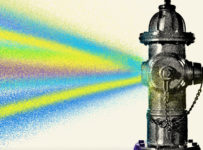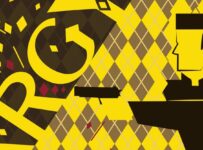(Working title: Franzen of the Opera)
A loose report of various things that may have been said at the talk.
It must be a huge burden to have people call you "America's greatest living novelist†or "one of America's greatest novelists†or "one of the greatest novelistsâ€. I say this entirely without irony because, after being given that title, what left is there for you to say? Anything will be an inevitable disappointment, and none of it will be your fault. This is only true if the title was bestowed upon you; if you gave it to yourself, you deserve whatever you have coming to you.
In having written some pretty good books, Jonathan Franzen accidentally painted himself into a corner. His American novels became metonymous for the American novel. This gave Australians free licence to ask Franzen to deconstruct his country for our entertainment and edification. He was able to do this to an extent, but the evening was best when Franzen was being specific: why he writes what he writes, and how it all comes to be. Discussing the act of writing and what informs it is far more interesting than a simple oration on the general state of the nation in which it was produced.
Geordie Williamson got the interview portion of the evening off to a bad start by referring to his subject as "James Franzenâ€, and it never quite recovered from there. Williamson is obviously well read and erudite but Franzen seemed never quite sure what to make of him, almost as if Franzen was a mere sounding board for Williamson to bounce ideas off. Franzen said that he was glad that he had been in Australia for September 11, because he hated the emptiness of the anniversaries in the media. Of course, this meant that a large chunk of the evening was devoted to the discussion of September 11 and its meaning.
I don't think that I was alone in not being prepared for what Franzen said next. Certainly, the man who loudly stomped out of the room shouting something along the lines of "not happening!†was unable to take it. Franzen made a point of not having had a TV when September 11 occurred (one of those people), so he only got the media reaction to it third hand. He believes that the "event that changed America forever†is more media mythologising than it is the actual fact of the situation. I don't think that such a naive approach to the issue is seriously tenable; September 11 has undeniably changed the timbre of world culture over the past decade, and America has most definitely been informed by the events. The continued glorying in military culture, two contemporaneous and ongoing wars are direct consequences of that day.
Franzen noticed that September 11 was itself hijacked by politicians for their own ends, so it is strange that he can't accept that yes, the psychic scar of the day, manufactured by the media or not, has had a lasting and profound impact on both his nation and the world at large. It's not necessarily a positive impact (I would argue that little good has directly resulted from September 11), but a fundamental shift in a national psyche should not be so easily discounted. While Freedom is not strictly about September 11, it is informed by it and it is explicitly referenced in the text. To say anything else is irresponsible, but then, Franzen deliberately attacked the question of the day from the angle of not having a television; as an American author, he is not required to have deep feelings about September 11, but it is disappointing that he had to express something so facile about something so patently obvious.
A woman on a balcony asked Franzen how he managed to cover characters over such a long period of time, and his answer came down to the fact that he falls in love with them. He conceives characters and comes up with points for them to develop towards, and then works on writing them to those goals; he writes in many possibilities for each of them, eventually coming up with many concepts and folding them into one another. In this way he gets textured and contradictory figures that he really likes to write about. This was potentially my favourite response of the night.
Upon being asked about the origins of The Corrections, Franzen explained that he wrote it as a way of working through things without directly addressing them. He says that very little in The Corrections is recognisable as coming from his own life, but that it did help him communicate with people in a way.
He explained that he would rather people considered families "interesting†instead of dysfunctional, because "dysfunctional†is not feeding a baby for 24 hours because you're on the streets selling your body for crack. Regardless, he considers family units interesting and likes writing about them. When one woman quizzed him as to Jessica's stance as a non-character in Freedom he said that she was well-adjusted, intelligent and in a good position, that he didn't need to write about her. I had considered Jessica outside of Freedom's necessary purview, and I was happy to go along with this.
He also spoke of his respect for many female authors (that strange Salon article about Obama's gendered reading habits came up), and David Foster Wallace's reaction to the old guard of narcissists like Updike and Roth was also mentioned. Franzen considers Roth and Updike to have good sentences, but he thinks that, as works of fiction, their novels are poorly constructed. On this point I can't really comment as I really only fake being widely read; mostly I read excruciating books about designer drugs and scatology.
One of the final questions dealt with Franzen's treatment of satire, and that it is far less extant in Freedom than The Corrections. Franzen explained that he views satire as an "angry man's gameâ€, and that after The Corrections met with success he found that he had less to be angry about – and, in fact, couldn't pinpoint exactly why he'd been so pissed off for the previous twenty years. He went on to say that he had worked on his memoirs and that this had changed his stance on his relationship to his mother to the point that he realised she had done exactly the right thing by him.
This led to the realisation that he didn't want to make fun of his characters any more, to laugh at them, and that, again, he really just wanted to like them. I still think that Freedom was not without its bite, particularly in regard to the evangelicals, and some of his ideas of the youth of today come too close to simple parody, but for the most part I took the point.
The evening closed out with the fielding of a question about Oprah, which Franzen admitted was a topic that he generally avoided answering. The inquisitor posed the question in such a way that it came across as an obvious attack on Oprah, but Franzen spoke of her in only the nicest of ways, saying that he ultimately realised that, while the Book Club had started off with books of what he considered little literary value, that work like his should be disseminated through such channels. He apologised for the "schmaltzy†line, but the majority of the light that he shed is well documented: a quick visit to Wikipedia is all the fact checking that one really needs.
A night with Jonathan Franzen was an odd way to spend 75 minutes, but on the whole I would say that it was pleasant experience and I learned a little something about a man, his work and, above all, proper interview technique.


